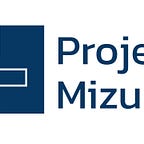Stanford Project Mizu Unveils Pioneering Playbook for Climate Adaptation in Water and Agriculture
Reports are available below;
Water-Agriculture Adaptation is the Next Climate Whitespace
A cross-disciplinary team of Stanford scholars and professionals announces the release of the world’s first “playbook for climate catalysts” for water-agriculture adaptation. “When we run out of water, we will run out of food. We need a playbook to adapt ahead of time,” says Tomo Kumahira, Lead Author of the report.
Nine out of 10 climate catastrophes are about water. With 70% of the world’s fresh water usage in agriculture, climate change is threatening to irreversibly impact the global food supply. Until now, solutions have been deployed in silos of “water,” “agriculture,” and “climate change” without sufficient interdisciplinary collaboration. In contrast to $1.3 trillion investment in mitigation of climate change, solutions for adaptation received only $63 billion, or 5% of the total climate finance last year.
To tackle this gap, Project Mizu, an interdisciplinary research group led by agriculture and water industry professionals at Stanford Graduate Schools of Business, Sustainability, and Engineering, today published a comprehensive guide for addressing climate change impacts on water and agriculture. The 100+ page playbook identifies 150+ solutions, distills 1,000+ hours of research, and synthesizes discussions by 30+ professionals across private, public, and research sectors globally.
Comprehensive Toolkit for Stakeholders and New Entrants
“The authors of the report saw an urgent need to bridge the gap between climate change mitigation and adaptation,” said Ryo Takanashi, another Lead Author of this report. “Despite heavy investment in mitigation efforts, adaptation — particularly in the crucial intersection between water and agriculture — has been markedly underfunded and fragmented.”
Rapid and global-scale adaptation is crucial to sustaining agriculture to feed 10 billion people, and to updating the multi-trillion-dollar agricultural supply chain. Project Mizu’s playbook addresses the disconnect in the water-agriculture nexus by mapping out a multi-faceted approach to ensure that sustainable practices become standard. The playbook aims to offer a practical toolkit to direct stakeholders such as farmers, policymakers and advisors while inviting more entrepreneurs, investors, and changemakers to this multi-billion-dollar innovation whitespace.
“To mobilize resources across the global value chain, it is imperative to understand the entire system and collectively form an effective adaptation strategy,” said Kumahira.
The Project Mizu playbook provides conceptual frameworks, a taxonomy of over 150 solutions, a survey of breakthrough opportunities, and future scenarios which together paint a comprehensive picture to navigate the complex systems. By synthesizing academic research, case studies, technology reports, and public guidelines, the playbook offers the range of disparate stakeholders a unique tool for practical decision-making and innovation.
Five Highlights from the Playbook
The Project Mizu playbook presents five key elements to help audiences understand and address the opportunity in the whitespace of water-agriculture adaptation
#1: Solution System Framework — outlines an analytical framework to connect the silos across the water-agriculture solution space.
#2: Solution Taxonomy — catalogs an extensive range of 150+ water-agriculture solutions from water sourcing to on-farm management, as a first-in-the-field attempt to create a common reference point.
#3: Breakthrough Opportunities — identifies five focus areas for research, investment, and innovation that can dramatically improve water sustainability in agriculture.
#4: 4 Future Archetypes of Adaptation — maps the diverse course of a future we can envision in the water-agriculture nexus, crystalizing 20+ hours of scenario thinking workshops.
#5: 3 Steps to Climate-Proof Agriculture — proposes a guideline to prioritize investments in different kinds of solutions to balance short-term climate shock response and long-term societal adaptation.
A Fresh Perspective Creates Avenues for New Entrants
Leading researchers and industry experts have shared their comments on the playbook. Professor Barton Thompson of Stanford Law School and Doerr School of Sustainability pointed out that the report addresses “one of the most important, yet under-analyzed, climate-change problems,” while Taka Hagiwara, the UN FAO India Representative, underscored “a fresh perspective” and “a comprehensive overview for practitioners worldwide” in a complicated issue space that “often triggers conflicts and instability.”
Professor Yoshihide Wada of King Abdullah University of Science and Technology (KAUST) adds that the report also carves out “avenues for entrepreneurs and fresh entrants.” Given adaptation “remains largely undefined,” Peter Turner of Breakthrough Energy Ventures highlights that Project Mizu’s structured analysis enables “climate entrepreneurs and investors to identify low-hanging fruits and potential game changers.”
With climate change already affecting global food security — as evidenced by record temperatures, severe droughts, and devastating floods — Project Mizu’s playbook emerges as an practical reference point for fostering resilience and adaptability.
“It all started with a Tweet asking for research participation in ‘Water x Agriculture x Adaptation.‘ Suddenly, more than 30 people gathered to form an army of interdisciplinary researchers,” states Kumahira, co-founder of Project Mizu, describing his initiative’s unique origin. “Agriculture people talk about water all the time. Water people also talk about agriculture. We are just connecting the dots,” Takanashi, another co-founder, emphasizes.
Report PDFs are available below;
For more information on Project Mizu and to access future research, follow Linkedin and this Medium.
Did we miss anything? For questions, comments, and feedback, please contact us via this link. We welcome feedback.
